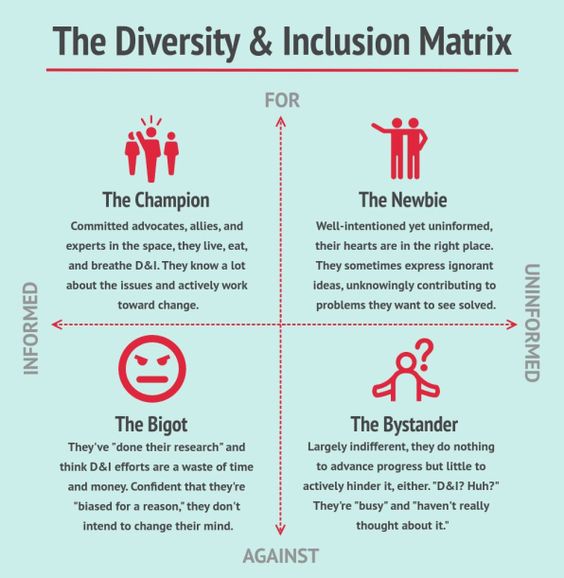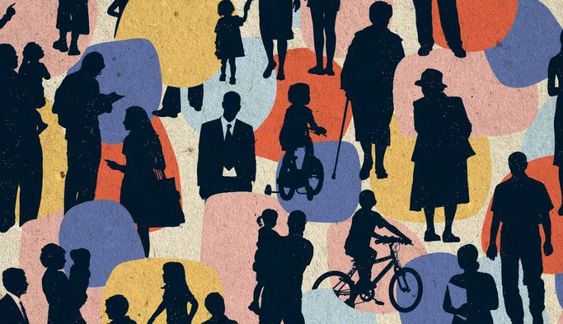What is Racial Ideology
Racial ideology encompasses the beliefs, attitudes, and practices that justify or perpetuate racial inequality and hierarchy within societies. It is a complex system of ideas and structures that influence how individuals and groups perceive, interact with, and understand race.
Racial ideology is deeply ingrained in societies worldwide, shaping social, political, and economic systems. It has historical roots that trace back centuries, evolving and adapting over time. Understanding racial ideology is crucial for addressing issues of racism, discrimination, and inequality.
Historical Background
Origins of Racial Ideology
Racial ideology has its origins in colonialism, slavery, and imperialism. During the European expansion, racial hierarchies were constructed to justify the subjugation of indigenous peoples and the exploitation of African slaves. These hierarchies categorized people based on physical characteristics such as skin color, creating a system of superiority and inferiority.
Evolution Over Time
Over time, racial ideology evolved, adapting to changing social and political landscapes. Scientific racism emerged during the 19th and early 20th centuries, using pseudo-scientific theories to justify racial superiority. This period saw the development of ideas such as eugenics, which advocated for the selective breeding of “superior” races. Also, read about What is Global Security
Key Components of Racial Ideology
Beliefs and Assumptions
Racial ideology is built upon beliefs and assumptions about the inherent superiority or inferiority of certain racial groups. These beliefs often perpetuate stereotypes and reinforce existing power structures. They may manifest in everyday interactions, institutional policies, and cultural norms.
Social Structures and Hierarchies
Racial ideology is also reflected in social structures and hierarchies, which allocate resources, opportunities, and privileges unequally based on race. This can result in systemic inequalities in areas such as education, employment, housing, and healthcare.

Impact on Society
Discrimination and Prejudice
One of the most significant impacts of racial ideology is the perpetuation of discrimination and prejudice against marginalized groups. This can take many forms, including overt acts of racism, microaggressions, and unconscious biases.
Institutional Racism
Institutional racism refers to policies, practices, and procedures within institutions that perpetuate racial inequalities. This can include biased hiring practices, unequal access to resources, and disparities in the criminal justice system. Discover more about What is a domestic dispute
Intersectionality
Gender, Class, and Race
Intersectionality recognizes that individuals’ experiences of oppression are shaped by multiple intersecting identities, such as race, gender, class, sexuality, and ability. Racial ideology intersects with other forms of oppression, compounding the effects of discrimination and marginalization.
Interconnected Systems of Oppression
Intersectionality highlights the interconnected nature of various systems of oppression, illustrating how racism, sexism, classism, and other forms of discrimination reinforce each other. This framework is essential for understanding the complexity of social justice issues and developing inclusive solutions.
Modern Perspectives
Challenges and Critiques
While significant progress has been made in challenging racial ideology, many obstacles remain. Critiques of mainstream narratives highlight the need for a more nuanced understanding of race and racism, one that acknowledges historical injustices and ongoing inequalities.
Efforts for Change and Progress
Despite these challenges, there are many efforts underway to combat racial ideology and promote equity and justice. This includes grassroots activism, policy advocacy, community organizing, and cultural resistance. These efforts are crucial for creating a more inclusive and equitable society.
Psychological Aspects
Stereotyping and Bias
Racial ideology influences how individuals perceive and interact with others, often leading to stereotyping and bias. These unconscious prejudices can manifest in subtle ways, influencing decisions and behaviors in various contexts.
Implicit and Explicit Racism
Racism can be both explicit and implicit, with explicit forms involving overt acts of discrimination and hate, while implicit forms are often unconscious and unintentional. Understanding the psychological mechanisms behind racism is essential for addressing its root causes and promoting empathy and understanding.

Cultural Manifestations
Media Representation
Media plays a significant role in shaping perceptions of race and ethnicity, often perpetuating stereotypes and reinforcing existing power dynamics. Representation matters, and efforts to diversify media narratives can challenge racial ideology and promote positive portrayals of marginalized communities.
Cultural Appropriation
Cultural appropriation occurs when elements of one culture are adopted or appropriated by members of another culture without understanding or respect for their significance. This can perpetuate racial stereotypes and erase the contributions of marginalized communities.
Educational Systems
Curriculum and Teaching Methods
Education plays a crucial role in shaping attitudes and beliefs about race. Curriculum and teaching methods should be inclusive and culturally responsive, challenging racial stereotypes and promoting critical thinking and empathy.
Addressing Racial Bias
Educators must also address racial bias within schools and classrooms, creating environments where all students feel valued and respected. This includes providing training and resources for teachers, implementing anti-bias curriculum, and fostering dialogue around issues of race and racism.
Political Implications
Policies and Legislation
Political decisions and policies have profound implications for racial equity and justice. Policies addressing issues such as voting rights, criminal justice reform, and affirmative action can help dismantle systemic barriers and promote equality.
Voting Rights and Representation
Ensuring equal access to the political process is essential for addressing racial disparities and amplifying the voices of marginalized communities. Efforts to protect voting rights and increase representation are crucial for advancing racial justice.
Economic Inequality
Wealth Disparities
Racial ideology intersects with economic systems, resulting in significant wealth disparities between racial groups. Historical injustices such as slavery, segregation, and discrimination have contributed to these disparities, which persist today.
Employment Discrimination
Discrimination in the workplace remains a significant barrier to economic mobility for many people of color. Racial biases in hiring, promotion, and pay contribute to unequal opportunities and reinforce existing inequalities.
Global Perspectives
Colonialism and Imperialism
Racial ideology has global implications, shaping relationships of power and privilege between nations and peoples. Colonialism and imperialism have historically been driven by racist ideologies, resulting in the exploitation and oppression of indigenous peoples and communities of color.
Globalization and Migration
Globalization has led to increased migration and cultural exchange, but it has also exposed underlying tensions around race and ethnicity. Issues such as xenophobia, nationalism, and border control reflect ongoing debates about identity and belonging in an interconnected world.

Social Movements
Civil Rights Movements
Throughout history, social movements have played a crucial role in challenging racial ideology and advocating for equality and justice. From the civil rights movement to contemporary activism, grassroots efforts have pushed for systemic change and empowered marginalized communities.
Contemporary Activism
Today, movements such as Black Lives Matter are leading the charge for racial justice, addressing issues such as police brutality, mass incarceration, and structural racism. These movements are demanding accountability and calling for transformative change at all levels of society.
Challenges Ahead
Overcoming Deep-Seated Ideologies
Addressing racial ideology requires confronting deep-seated beliefs and attitudes that have been ingrained in society for generations. This necessitates challenging systems of power and privilege and promoting empathy, understanding, and solidarity across racial lines.
Building Inclusive Societies
Creating inclusive societies requires collective action and commitment from individuals, communities, institutions, and governments. It involves dismantling systemic barriers, redistributing resources, and amplifying the voices of those most impacted by racism and inequality.
Conclusion: Moving Towards Equity and Justice
In conclusion, racial ideology is a pervasive force that shapes our perceptions, interactions, and institutions. Understanding its origins, manifestations, and impacts is essential for addressing racial inequality and building a more just and equitable society. By challenging deep-seated beliefs and advocating for systemic change, we can work towards a future where all people are valued, respected, and treated with dignity and fairness.
FAQs
What role does intersectionality play in understanding racial ideology?
Intersectionality acknowledges that individuals’ experiences of oppression are shaped by multiple intersecting identities, such as race, gender, and class. It highlights the complexity of social justice issues and the interconnected nature of various forms of discrimination.
How does racial ideology manifest in everyday life?
Racial ideology can manifest in everyday interactions, attitudes, and behaviors, often perpetuating stereotypes and reinforcing existing power dynamics. This can result in discrimination, prejudice, and unequal treatment based on race.
What are some examples of institutional racism?
Institutional racism refers to policies, practices, and procedures within institutions that perpetuate racial inequalities. Examples include biased hiring practices, unequal access to resources, and disparities in the criminal justice system.
How can individuals challenge racial ideology in their communities?
Individuals can challenge racial ideology by educating themselves and others, speaking out against injustice, supporting marginalized communities, and advocating for systemic change. Building relationships across racial lines and fostering dialogue is also crucial.
What role do social movements play in addressing racial ideology?
Social movements have historically played a crucial role in challenging racial ideology and advocating for equality and justice. Movements such as Black Lives Matter are leading the charge for racial justice today, demanding accountability and systemic change.
